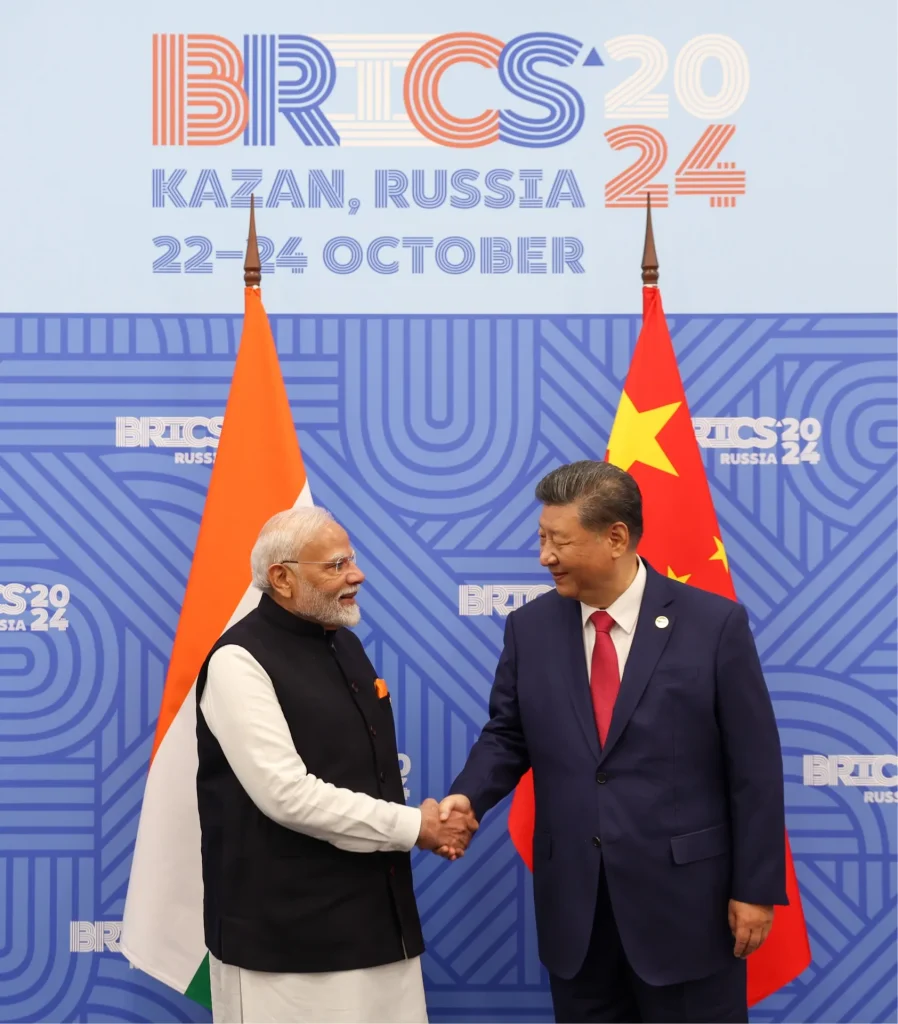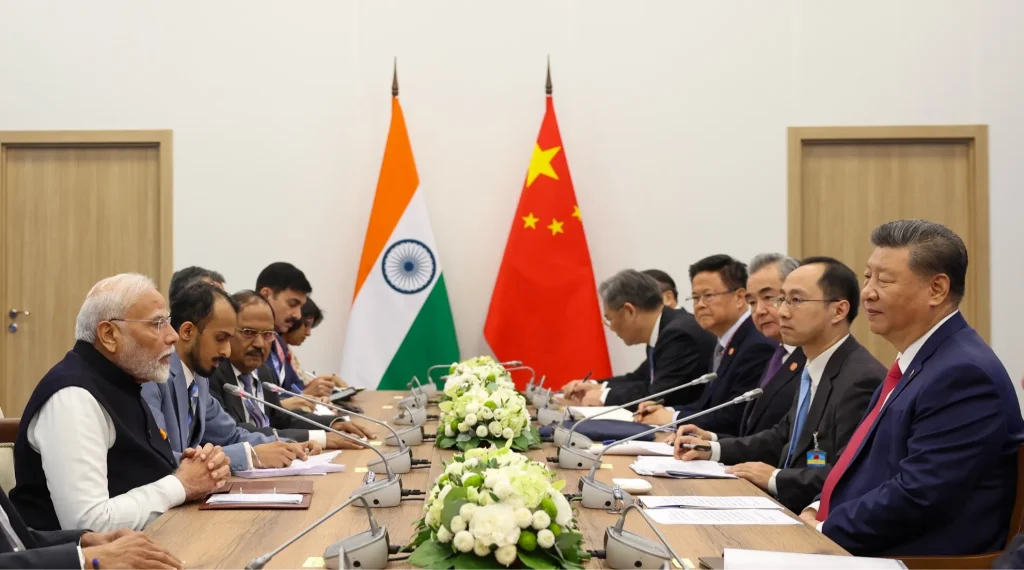As Prime Minister Narendra Modi and Chinese President Xi Jinping convened in Kazan, Russian media described the China-India relationship as an opportunity worth valuing. This meeting marks the first bilateral discussion between the leaders in five years, reflecting a quiet yet significant change in their relations over recent months.

Recent Developments in Relations
China recently appointed a new ambassador to India after an 18-month hiatus. Notably, the foreign ministers of both countries met twice in July, and there were two border consultation meetings in New Delhi and Beijing at the end of July and August. A meeting between Foreign Minister Wang Yi and National Security Adviser Ajit Doval in St. Petersburg in September also laid the groundwork for addressing border issues, setting the stage for the Modi-Xi summit.
U-Shaped Relationship Dynamics
According to Zhang Jiadong from Fudan University, the long-stagnant China-India relationship has not deteriorated into conflict but has sought to overcome previous barriers. The pace of improvement will depend on two main factors: effectively resolving the border dispute and India easing restrictions on Chinese investments and people-to-people exchanges.
Promoting Trilateral Cooperation
China acknowledges Russia’s crucial role in alleviating tensions between India and China. Observers suggest that recent progress in border negotiations could facilitate trilateral cooperation among Russia, India, and China (RIC). The idea of reviving RIC has gained traction in Chinese strategic discussions, particularly following Russian Foreign Minister Sergey Lavrov’s comments about convening a trilateral meeting.
Changing Perceptions of Russia
Historically sceptical about Russia’s role in mediating China-India relations, China now seems more receptive to this idea. They believe Russia’s interest in fostering reconciliation may arise from its desire to counter Western economic pressures. Additionally, concerns about foreign support for separatist movements in India create a context for strengthening the trilateral framework.

Negotiating Factors for India
Chinese scholars highlight several reasons why India is engaging in negotiations, including economic pressures from military tensions with China and a perceived decline in U.S. commitment to India amid global distractions. The desire to maintain the unity of BRICS, which has been strained by China-India tensions, is a significant factor pushing India to mend ties with China.
BRICS Dynamics and Challenges
India’s engagement with China is also seen as critical for preserving the effectiveness of BRICS. Recent tensions have hindered the group’s functioning, and India feels compelled to assert its presence as BRICS gains prominence in shaping a new global economic landscape. India’s proactive stance is reflected in its efforts to strengthen cooperation within the group.
Lingering Challenges
Unresolved Issues
Despite these positive shifts, strategists from both countries remain cautiously optimistic about the future of China-India relations, as many complex challenges persist. Territorial disputes, water resource management, regional influence competition, and issues related to Pakistan, Tibet, and Taiwan continue to present obstacles.
BRICS Internal Disagreements
Even within BRICS, differences between China and India remain evident, particularly regarding currency acceptance and representation in international institutions. Recent BRICS foreign ministers’ meetings have struggled to produce unified statements due to internal disagreements, notably over India’s proposal for permanent UN Security Council seats.
Looking Ahead
As both nations prepare to celebrate 75 years of diplomatic relations next year, the future trajectory of China-India ties remains uncertain. Whether they can navigate their rivalry and strategic competition toward a more cooperative relationship will be crucial for regional stability.
